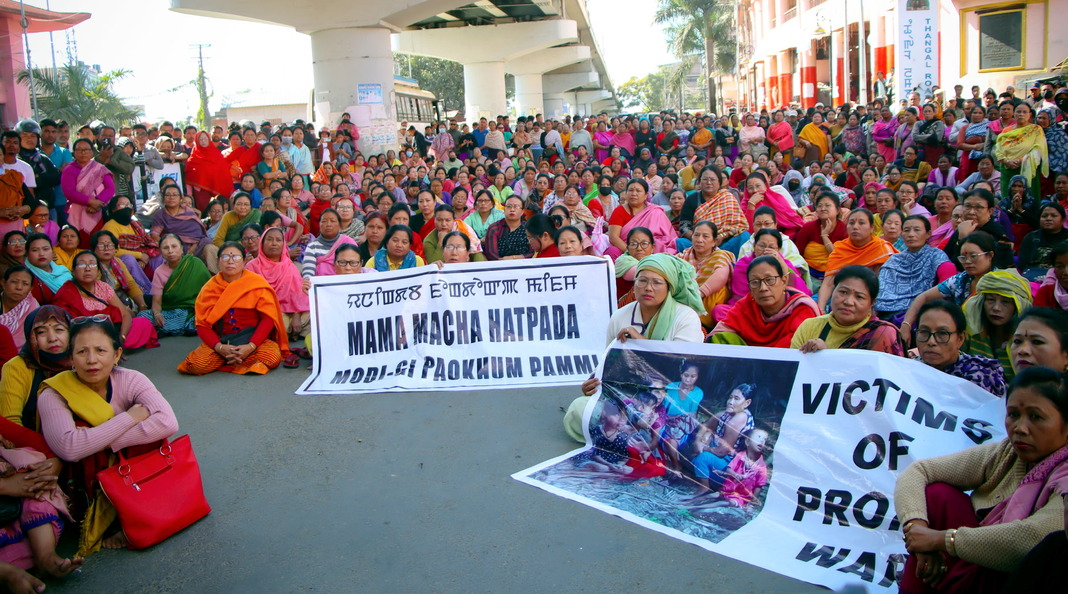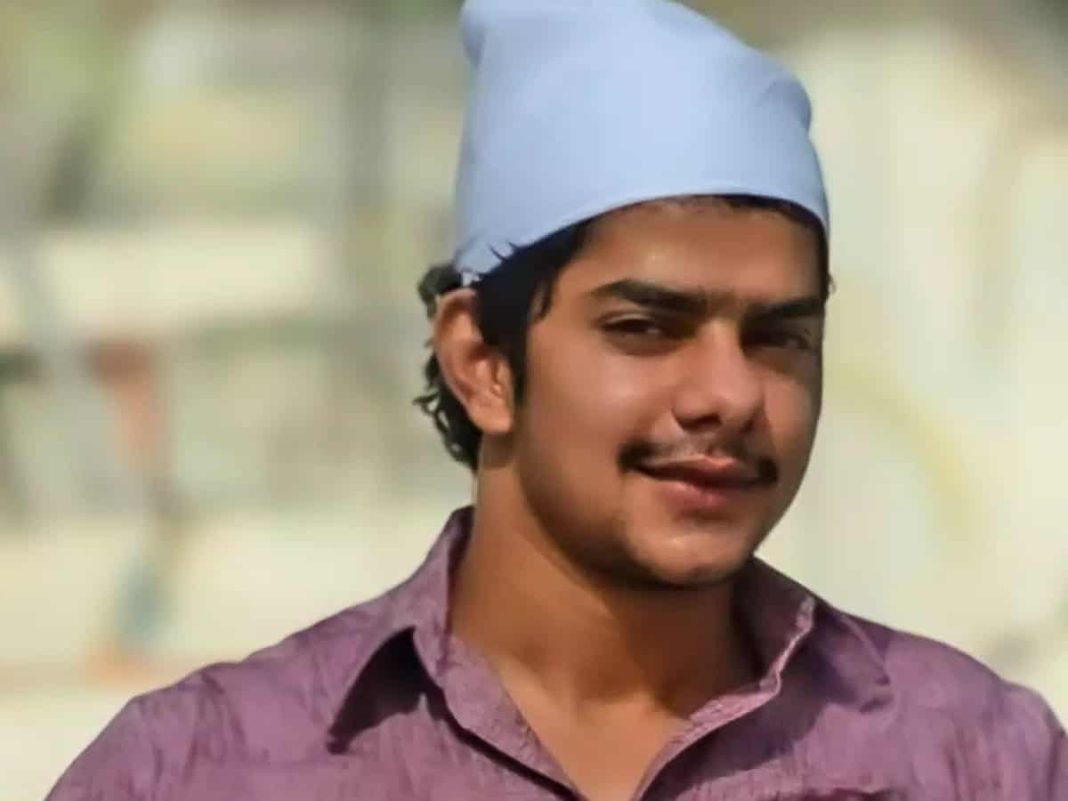Dipak Kurmi
The state of Manipur, nestled in the northeastern corner of India, is today a battleground of unbridled violence and political inertia. Since May 2023, this region of 3.2 million people has been gripped by ethnic tensions that have metastasized into widespread hostilities between the Hindu Meiteis, who dominate the Imphal Valley, and the Kuki-Zomi tribes that reside in the surrounding hills. These tensions, simmering for decades, erupted with catastrophic consequences following a divisive court ruling, turning Manipur into a tragic theater of bloodshed, displacement, and administrative apathy.
The immediate flashpoint was a High Court directive urging the state government to consider granting job reservations to the Meiteis. For the Kukis, this judicial suggestion symbolized an existential threat, one that could erode their already tenuous stake in the state’s socio-economic framework. Though the offending portion of the court order was later rescinded, the fissures it exposed had already deepened. Violence erupted, and what began as protests soon spiraled into unchecked chaos. Over the past 18 months, almost 250 lives have been lost, with 60,000 people displaced, forced to flee their homes for an uncertain existence in relief camps.
The geography of the conflict reflects its grim trajectory. The Imphal Valley, controlled by the Meiteis, and the Kuki-dominated hills are now separated by a stretch of no-man’s-land, monitored by Central paramilitary forces. Yet, this policing of boundaries has done little to quell the violence. Just this month, a tragic incident underscored the state’s unraveling: three Meitei women and three children went missing from a displaced persons’ camp in Jiribam following a gunfight that killed 10 militants. Their bodies were reportedly found later, triggering mass protests and retaliatory attacks. Houses of ministers and legislators from the ruling Bharatiya Janata Party (BJP) were targeted, and curfews, along with internet shutdowns, became the government’s standard response to escalating violence.
Manipur’s descent into chaos has been compounded by the failure of both the state and Union governments to address the crisis with any degree of seriousness or urgency. Chief Minister N Biren Singh’s administration has been accused of running a partisan government, exacerbating the divide rather than bridging it. The National People’s Party (NPP), a key ally in the state coalition, recently withdrew its support, citing Singh’s inability to restore order. Though the withdrawal does not endanger the BJP-led government’s majority, it underscores the growing disenchantment with Singh’s leadership even within his political circle.
The BJP’s inability—or unwillingness—to hold the Chief Minister accountable raises uncomfortable questions about its priorities. Despite calls for his resignation, Singh remains firmly ensconced, even as public anger boils over. Prime Minister Narendra Modi, whose presence could signal a commitment to addressing the crisis, has conspicuously avoided visiting the state. His sole mention of the ongoing violence has been cursory, and his silence has only fueled criticism of his government’s apparent indifference. Meanwhile, Home Minister Amit Shah has made sporadic attempts to address the situation, canceling engagements in poll-bound Maharashtra to convene meetings on Manipur. Yet, even these interventions have failed to yield tangible results.
The situation in Manipur reflects a broader failure of governance. Neither force nor dialogue has been employed effectively to restore peace. The imposition of the Armed Forces Special Powers Act (AFSPA) in parts of the Imphal Valley has only alienated sections of the population further, while the state government’s contradictory calls for its withdrawal expose its incoherence. There is no visible political initiative to bring the warring ethnic communities to the negotiating table. The vacuum left by the absence of a structured reconciliation process has allowed hatred and mistrust to grow unchecked, turning Manipur into a state where neither majority nor minority feels secure.
The humanitarian toll of this conflict is staggering. Villages have been razed, families torn apart, and bodies—many of them women and children—discovered bearing signs of unspeakable cruelty. Relief camps are overcrowded and under-resourced, offering little solace to the thousands displaced by the violence. Reports of atrocities committed by both sides further complicate the narrative, making reconciliation seem like an unattainable goal in the near future.
Adding to this grim picture is the political fallout for the BJP, which has prided itself on its outreach to the Northeast. The Manipur crisis has exposed the fragility of this strategy. The party’s loss of both Lok Sabha seats in the state during recent elections underscores the erosion of its support base. The withdrawal of the NPP from the ruling coalition, while not an immediate threat to the government’s stability, is a damning indictment of the BJP’s failure to manage its alliances effectively. The state, which once showcased the BJP’s electoral gains in the Northeast, has now become a symbol of its administrative and political shortcomings.
The comparisons drawn between the current leadership’s handling of Manipur and former Prime Minister Atal Bihari Vajpayee’s near-dismissal of then-Gujarat Chief Minister Narendra Modi during the 2002 riots are stark. Vajpayee’s moral outrage, even if ultimately unacted upon, stands in contrast to today’s silence. As the fires of resentment engulf the state, the BJP’s refusal to hold Biren Singh accountable suggests a troubling acceptance of mediocrity and inertia.
The question of what lies ahead for Manipur is both urgent and daunting. The state’s recovery will require a multi-pronged approach, blending immediate security measures with long-term reconciliation efforts. The Union government must step in decisively, not just with troops and curfews, but with policies that address the root causes of the conflict. This includes revisiting contentious issues like land rights, reservations, and political representation. At the same time, civil society and local leaders must be empowered to mediate between the communities, fostering dialogue and understanding where the state has failed.
Manipur’s agony should serve as a wake-up call for India’s leadership. The sight of tortured bodies and burning homes is a grim reminder of the price of neglect. For a nation that prides itself on its democratic ethos, the events in Manipur represent a glaring failure to uphold the principles of justice, equity, and the rule of law. Time is running out, and the cost of further inaction will be borne not just by Manipur but by the entire nation.
(the writer can be reached at dipakkurmiglpltd@gmail.com)




